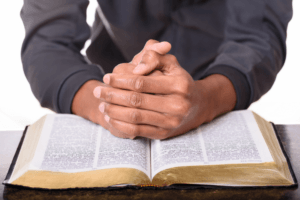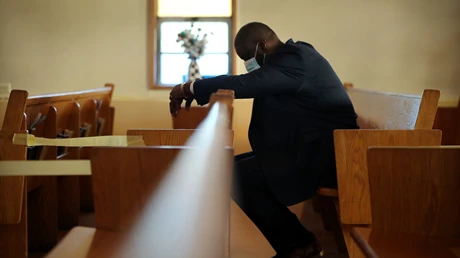What is the first of the Ten Commandments?
It might seem like an odd question, but it’s not! Jews and Christians give different answers. The reason is that what we know as the ten commandments is in the original Hebrew, “The Ten Statements.” And, since the Hebrew is the original, we begin with the first statement on which all religions agree upon:
“I am the Lord your God who took you out of the land of Egypt, out of the house of bondage.” – Exodus 20:2
This statement is so important that none of the other commandments make sense without it. First, it asserts that God is giving these commandments, not Moses or any other human being. Second, God is the one that delivered you from slavery. Again, no human being did this, not even Moses. Therefore, you have an obligation to God, and what is that obligation? That you live by the following nine commandments. This is the beginning of what is known as ethical monotheism, the greatest world-changing innovation of the Hebrew Bible.
Ethical Monotheism means that the one God (Monotheism) is the source of ethics or morality. Morality, an objective code of right and wrong, does not emanate from human opinion, it emanates from God which transcends human opinion.
The other meaning of ethical monotheism is that what God most wants from us is that we treat other human beings morally. None of the ten commandments concerns what humans must do “for” God. Pre-ten commandment religions all believe that people must do a lot “for” their gods, for example, feed them, and even sacrifice people to them. But now, thanks to the ten commandments, mankind learned that God wants to be good to our fellow human beings.
Even the commandments concerning not having false gods and not carrying God’s name in vain are ultimately about morality. The thing we can do “for” God is to treat all mankind decently. Every parent can relate to the fact that they have joy when they see their children act lovingly towards one another, and feel indescribable pain when they see their children hurt one another. So, God who is likened to our Father in Heaven cares most about how we treat other human beings all of whom are His creation.
The Ten Commandments Highlight Freedom
 The third critical teaching of the first statement, “I am the Lord your God who took you out of Egypt, out of the house of bondage” is the importance and the meaning of freedom!
The third critical teaching of the first statement, “I am the Lord your God who took you out of Egypt, out of the house of bondage” is the importance and the meaning of freedom!
Note that God is not saying in this introduction to the ten commandments that He created the world. It surely would have made a lot of sense for God to introduce the ten commandments with this statement, “I am the Lord your God who created the world.” That is, after all, pretty impressive and would make sense! “I created the world, you better listen to Me.”
But no, the one thing that God declares is that He took the children of Israel out of slavery and into freedom. That’s how much God hates slavery, and how important God considers freedom. Ironically, The Founders of America based their entire view of America on this belief that God wants us to be free. That is why the most iconic symbol of the American Revolution, “The Liberty Bell,” has only one sentence inscribed on it, a verse from the Hebrew Bible. “Proclaim liberty throughout all the land unto all the inhabitants thereof.”
But there is one other equally important lesson about freedom mentioned by the opening statement of the ten commandments – what freedom means. The Giver of the Ten Commandments is in effect saying, “I took you out of slavery and into freedom, and these ten commandments are the way to make a free society. You cannot be a free people if you do whatever you want. Freedom comes from moral self-control. There is no other way to achieve it.”
And fourth, by telling us that He liberated the Hebrew slaves, God made clear that He cares deeply about human beings. It is impressive to create the world, but what most matters is not only is there a Creator but that the creator cares about His creation. All of that is in the one statement with which the ten commandments begin. Think about it.
So, What’s The Play Call?
- Are you living your life according to the Ten Commandments?
- Is God your ONLY source in life?
- Are you fully aware of your own freedom?




